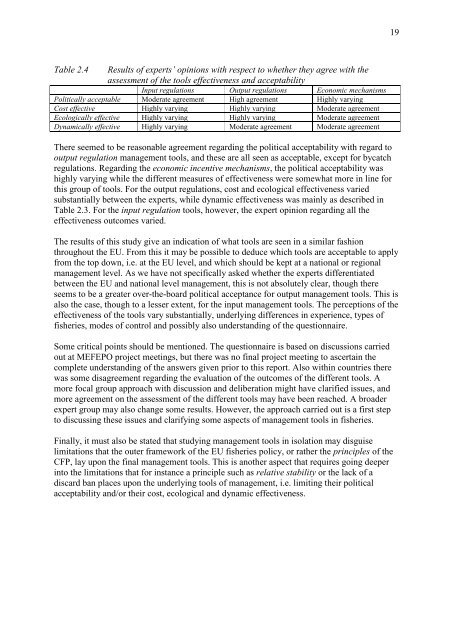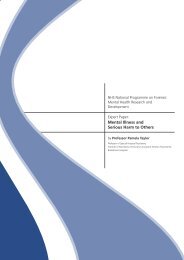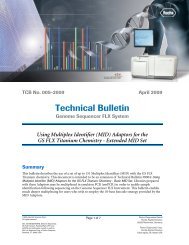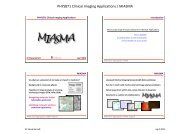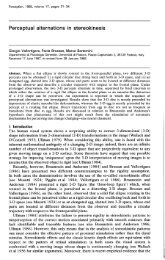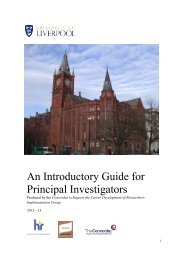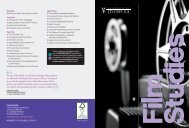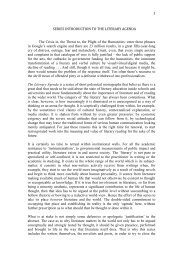Operational tools and adaptive management
Operational tools and adaptive management
Operational tools and adaptive management
You also want an ePaper? Increase the reach of your titles
YUMPU automatically turns print PDFs into web optimized ePapers that Google loves.
Table 2.4 Results of experts’ opinions with respect to whether they agree with the<br />
assessment of the <strong>tools</strong> effectiveness <strong>and</strong> acceptability<br />
Input regulations Output regulations Economic mechanisms<br />
Politically acceptable Moderate agreement High agreement Highly varying<br />
Cost effective Highly varying Highly varying Moderate agreement<br />
Ecologically effective Highly varying Highly varying Moderate agreement<br />
Dynamically effective Highly varying Moderate agreement Moderate agreement<br />
There seemed to be reasonable agreement regarding the political acceptability with regard to<br />
output regulation <strong>management</strong> <strong>tools</strong>, <strong>and</strong> these are all seen as acceptable, except for bycatch<br />
regulations. Regarding the economic incentive mechanisms, the political acceptability was<br />
highly varying while the different measures of effectiveness were somewhat more in line for<br />
this group of <strong>tools</strong>. For the output regulations, cost <strong>and</strong> ecological effectiveness varied<br />
substantially between the experts, while dynamic effectiveness was mainly as described in<br />
Table 2.3. For the input regulation <strong>tools</strong>, however, the expert opinion regarding all the<br />
effectiveness outcomes varied.<br />
The results of this study give an indication of what <strong>tools</strong> are seen in a similar fashion<br />
throughout the EU. From this it may be possible to deduce which <strong>tools</strong> are acceptable to apply<br />
from the top down, i.e. at the EU level, <strong>and</strong> which should be kept at a national or regional<br />
<strong>management</strong> level. As we have not specifically asked whether the experts differentiated<br />
between the EU <strong>and</strong> national level <strong>management</strong>, this is not absolutely clear, though there<br />
seems to be a greater over-the-board political acceptance for output <strong>management</strong> <strong>tools</strong>. This is<br />
also the case, though to a lesser extent, for the input <strong>management</strong> <strong>tools</strong>. The perceptions of the<br />
effectiveness of the <strong>tools</strong> vary substantially, underlying differences in experience, types of<br />
fisheries, modes of control <strong>and</strong> possibly also underst<strong>and</strong>ing of the questionnaire.<br />
Some critical points should be mentioned. The questionnaire is based on discussions carried<br />
out at MEFEPO project meetings, but there was no final project meeting to ascertain the<br />
complete underst<strong>and</strong>ing of the answers given prior to this report. Also within countries there<br />
was some disagreement regarding the evaluation of the outcomes of the different <strong>tools</strong>. A<br />
more focal group approach with discussion <strong>and</strong> deliberation might have clarified issues, <strong>and</strong><br />
more agreement on the assessment of the different <strong>tools</strong> may have been reached. A broader<br />
expert group may also change some results. However, the approach carried out is a first step<br />
to discussing these issues <strong>and</strong> clarifying some aspects of <strong>management</strong> <strong>tools</strong> in fisheries.<br />
Finally, it must also be stated that studying <strong>management</strong> <strong>tools</strong> in isolation may disguise<br />
limitations that the outer framework of the EU fisheries policy, or rather the principles of the<br />
CFP, lay upon the final <strong>management</strong> <strong>tools</strong>. This is another aspect that requires going deeper<br />
into the limitations that for instance a principle such as relative stability or the lack of a<br />
discard ban places upon the underlying <strong>tools</strong> of <strong>management</strong>, i.e. limiting their political<br />
acceptability <strong>and</strong>/or their cost, ecological <strong>and</strong> dynamic effectiveness.<br />
19


